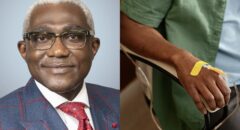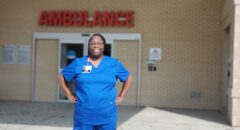
A colleague and I were recently discussing “the good ole days” over lunch. We reminisced about the neighborhoods we grew up in, the influence of our families and friends, and how we dodged poverty, violence, and isolation. When I look back, my years in college were probably the most significant period of personal growth, hard work, and good times.
LIKE BDO On Facebook! Get Your Daily Medicine…For Life!
I can also remember times of confusion and indecision—particularly as I struggled to declare a major. I had always been interested in a health career. During high school, I was exposed to physicians, nurses, physical therapists, and pharmacists, and decided I would become a physician. However, after receiving a C- in my freshman chemistry class, I knew the “pre-med” curriculum was not for me. During my junior year, I took a course in medical anthropology and was introduced to public health by my professor who was also a physician.
I learned that “health” was determined by so much more than the provision of health care services. It was during my senior year in college that I decided to pursue a graduate degree in public health, and the rest (as they say) is history.
These are exciting and trying times for public health. Not unlike other sectors, we are expected to do more with less to overcome both longstanding and emerging health threats.
According to the Association of Schools of Public Health (ASPH), by 2020, the nation will be facing a shortfall of more than 250,000 public health workers. They further estimate that, over the coming decade, schools of public health would have to train three times the current number of graduates to meet projected needs.
Even though we live in a nation with the most technologically advanced health care system in the world, not all Americans are benefiting from these advances.







